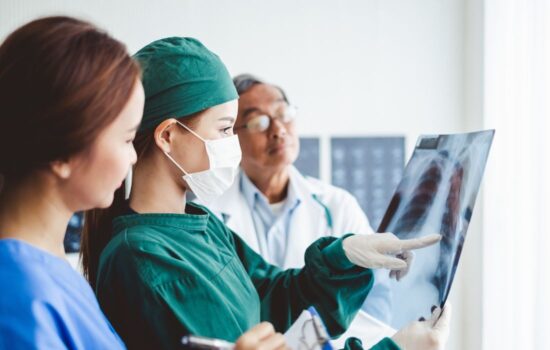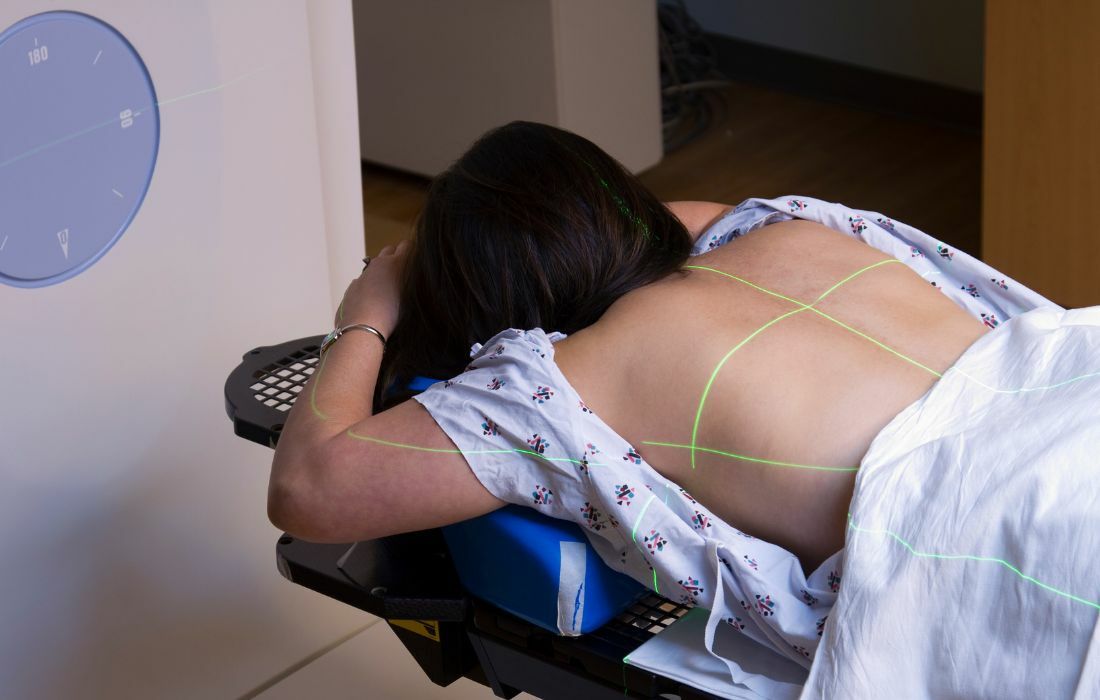May 29, 2025
Understanding What Happens When You Have Lung Cancer Surgery

Although both men and women continue to be affected by lung cancer, receiving a diagnosis is not as bleak as it once was. Thanks to continued advancements in therapies, patients with lung cancer are experiencing better outcomes than ever before. Additionally, better lung cancer screening techniques allow for earlier detection, greatly increasing the chances for successful treatment through surgery.
How Doctors Determine Whether You Should Undergo Lung Cancer Surgery
Surgery might not be the best option for all lung cancer patients, especially if the cancer is found at a more advanced stage. A surgical approach is most successful for early-stage lung cancers. Other treatments might be more appropriate when cancer cells have spread beyond the lungs.
Meeting with an oncologist who specializes in lung cancer is the best way to determine whether surgery should be included in your treatment plan. They will work closely with a thoracic surgeon to determine if lung cancer surgery can be performed effectively. The recommendation is typically based on the stage and location of your lung cancer. Together, your oncologist and the surgeon will plan out the timing of the surgery and consider whether other treatments are needed.
Types of Surgeries Used for Lung Cancer
During lung cancer surgery, the surgeon will remove the tumor(s), nearby lymph nodes, and a margin of healthy tissue. The size and spread of the cancer will determine the most effective surgical procedure. Common lung cancer surgery options include:
Lobectomy: This procedure removes an entire lobe of lung tissue. It can be very effective when the cancer is confined to one lobe, as not all lobes within the lung are essential for breathing. Lung cancer clinical trials are studying whether less invasive surgeries can provide similar outcomes for tumors two centimeters or smaller.
Wedge resection: This procedure removes the tumor and a wedge-shaped margin of surrounding lung tissue. It is typically used when removing an entire lung lobe isn't possible.
Segmentectomy: This technique may also be recommended if the entire lobe cannot be taken out. Segmentectomy is similar to wedge resection but requires the removal of more lung tissue and lymph nodes.
Pneumonectomy: This surgery removes the entire lung. It is usually recommended when the tumor is located near the center of the chest. This procedure carries higher risks compared to a lobectomy. Your heart and lung health must be evaluated before a pneumonectomy is recommended as a suitable treatment option.
Ways Lung Cancer Surgery Is Performed
There are two primary methods for performing lung cancer surgery: minimally invasive surgery (thoracoscopic or robotic surgery) or open surgery (thoracotomy). Whenever possible, minimally invasive surgery is used. This will be determined by how much of the lung needs to be removed.
Minimally invasive thoracic surgery: This method requires only a few small incisions to reach the chest. Surgeons can perform this procedure in several ways, including video-assisted thoracoscopic surgery (VATS), which uses a camera and special instruments, or with surgical robotic assistance. This less invasive technique typically allows patients to recover faster.
Thoracotomy: This approach involves a large incision between the ribs, giving the surgeon better visibility to remove tissue as needed.
How to Prepare For Surgery
What to Expect Before Lung Cancer Surgery
Certain tests, such as those that test lung function, will be conducted before surgery to ensure you are healthy enough for the procedure. If the results indicate you can undergo surgery, your care team will offer guidance on what foods, drinks, and medications you need to take or avoid leading up to the surgery.
If you smoke, consider quitting as soon as possible. Programs like Tobacco Free Florida offer resources to help you succeed.

This is also the perfect time to enlist the help of friends and family to support you after surgery. They can assist in getting you to and from appointments, helping around the house, or being there for you emotionally. It's also important to verify what your health insurance provider will cover so you aren't faced with unexpected billing concerns.
What to Expect After Lung Cancer Surgery
Recovery time varies among patients and is influenced by factors such as the type of surgery performed, how much lung tissue was removed, and your health before the operation. One key goal of your care team is to help you regain your strength and return to your daily life. To help speed up the recovery process, you will be encouraged to get up and moving as soon as possible after surgery. You may also receive breathing treatments to improve lung function. When it's time to go home, your oncologist or nurse will provide detailed instructions for at-home care.
Once at home, it is important to rely on your support system, allowing them to help with chores you would typically handle, such as grocery shopping, cooking, and cleaning. Asking others for help may seem hard, but doing so enables you to give your recovery the time and focus it needs. Be sure to ask your doctor about certain restrictions or whether you should do any activities in addition to physical therapy.
You may experience shortness of breath after lung cancer surgery. This can improve for some patients, but it may be permanent for others. If you experience this or any other post-surgery effects, such as pain, discomfort, or emotional distress, discuss them with your care team. They can provide helpful tips or suggest palliative care options to help improve your quality of life.
Will I Need Additional Treatment After Lung Cancer Surgery?
There is always the possibility of unseen cancer cells being left behind after visible lung cancer is removed. To ensure all of these cancer cells are killed, your oncologist may recommend additional lung cancer treatments, such as chemotherapy, radiation therapy, targeted therapy, or immunotherapy.

Lung Cancer Treatment in Brevard County, Florida
The cancer doctors at Cancer Care Centers of Brevard (CCCB) provide comprehensive care for lung cancer patients. If you are newly diagnosed with lung cancer, we are here to support you throughout your journey and to develop a personalized treatment plan that meets your specific needs. We also offer second opinions to ensure you are confident in your diagnosis and care.
Our lung cancer doctors are located throughout Brevard County, in Melbourne, Merritt Island, Rockledge, and Palm Bay, Florida. Find a location nearest you to request an appointment.
Categories: Lung Cancer